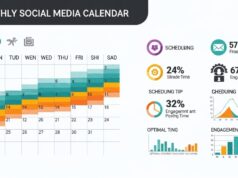Make Money Online
Women lead nine of the companies that were featured on the recently published Fortune AIQ 50 list, a ranking of the top Fortune 500 companies that are most mature in their adoption of artificial intelligence, when it comes to how tech leaders value their AI investments compared to rivals.
These women-led companies come from many broad corners of the economy, ranging from aerospace and defense to banking and retail. They account for 18% of the AIQ list, compared to women running just 11% of all companies on the Fortune 500 list in 2025.
AI use cases that have been deployed by these businesses have varied greatly. Financial giant Citigroup’s (No. 38) recent AI efforts have included retaining 175,000 employees on how to write better prompts to generate more impactful results from large language model queries. Insurance provider Progressive (No. 22) is using AI to help sort through hundreds of thousands of job applications. And a recently launched AI-powered tool by Albertsons (No. 30) can carry a conversation with consumers and suggest grocery items to consider buying while shopping online, which has proven to lift the total basket size.
Rounding out the list of women-led companies on the AIQ 50 are financial analytics firm S&P Global (No. 12), aerospace and defense giants General Dynamics (No 21) and Northrop Grumman (No. 43), mining company Freeport-McMoRan (No. 31), and health insurers Centene (No 27) and Elevance Health (No. 35).
Gail Boudreaux, the president and CEO of Elevance Health, says that her vision for AI is fairly simple and straightforward. “Make healthcare easier, more affordable, and more personal,” says Boudreaux.
Some generative AI use cases that Elevance Health has deployed include tools that make it easier for customer service representatives to retrieve the information they need to answer client questions. Elevance Health is also using AI to automate the transcription summaries of these calls, which also scans for any issues that may have arisen during the call. The AI tools then offer up tips on how to improve a representative’s future ability to handle similar requests.
“We have AI-enabled productivity tools that are used by more than 60,000 associates to help reduce repetitive tasks, so teams can focus more on supporting our members and providers,” says Boudreaux.
She also cited an AI certification that’s offered for employees through a partnership with OpenAI, giving employees formal acknowledgement of their AI fluency, which ranges from foundational skills like prompt engineering to more advanced AI-enabled work tasks.
Women tend to be “high adopters” when leaning into past technology trends, like social media, and Fortune’s data may signal that this consumer-driven behavior is perhaps being mirrored in the corporate setting.
“What you’re seeing is that the women CEO-led companies are showing up to adopt new technologies, in some ways that are consistent to some of the consumer adoption behavior we’ve seen in other technologies,” says Lareina Yee, McKinsey Global Institute director and a senior partner at the consultancy.
Yee is a founder and leading author of McKinsey’s 10-year research project on women in the workplace, which found that women make up 29% of C-suite positions as of 2024, up from 17% in 2015. But progress has been far slower for women in entry-level, manager, and VP positions.
There is also a mixed picture when looking under the hood of the AI race. Most of the largest AI startups that are building the large language models or other systems to propel this technology advancement, including OpenAI, Anthropic, and Databricks, are overwhelmingly co-founded and led by men. Early data shows that women-led AI companies pull in very little funding from venture capital (though former OpenAI CTO Mira Murati’s Thinking Machines Lab, which raised $2 billion in July, is a notable exception), mirroring the general trend across the entire economy.
More encouragingly, women in tech have cornered the chief financial officer role. Women serve as the CFO at OpenAI, Microsoft, Nvidia, Alphabet, and Salesforce.
“And so even though the CEO may not be a woman in all of those companies, the CFO is a pretty powerful role,” says Yee.
Sarah Franklin, CEO of AI-powered HR platform Lattice, says both genders are starting at the same point when it comes to adoption of generative AI. “There’s no one in this world who has ten years of agentic AI experience,” says Franklin. “I don’t care if you are a man or a woman.”
She notes that the corporate leaders can also learn from past failings. Social media was a form of technology that was mostly built by men and it wasn’t until years later that studies began to report on how harmful it could be to users, including mothers and teenage girls.
“I think it’s an incredible opportunity for women to ask the right questions of, how should we responsibly bring AI into the workforce and into our homes and into our lives,” asks Franklin. “We don’t want to end up with a bad, dystopian outcome.”
Read more lessons from the Fortune AIQ 50, the latest Fortune AIQ special report. This collection of stories details how companies on the inaugural Fortune AIQ 50 list have made significant progress integrating artificial intelligence technology into their operations, leading to real impact.









